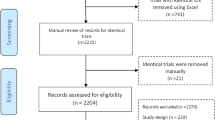Abstract
The drug development process of demonstrating an agent is safe, effective and pure has, with rare exception, proven an exemplary path in translational research. The basic science, the clinical trials and the chemistry, manufacturing and control have served public health well. This carefully regulated approach forms the basis of a drug label with data from these studies also used to convey risk and benefit to prescribing physicians through the channels of medical literature and drug promotion by the industry. The latter is also important to public health in that such promotion must be based in the approved indication, be truthful, not be misleading and be substantiated by sufficient evidence. Why then is the emergence of “medical marijuana” any different? While substantial evidence exists for some conditions and some related products have undergone careful investigation through to NDA approval, most claims are not substantiated by research but driven by misguided enthusiasm. While recreational use of marijuana is not at debate here, nor is the right of an individual patient to explore cannabis therapeutically; however, allowing broad unsubstantiated claims around medicinal cannabis to infiltrate the general public is a disservice. To distill the potential medical benefits through the pharmacologic understanding of the endocannabinoid system, cannabis should follow the traditional drug development process or one that improves upon it. Until then, claims should remain as stated hypothesis to accept or reject.
Résumé
Le processus de développement de médicament qui consiste à démontrer l’innocuité, l’efficacité et la pureté d’un agent s’est avéré, à de rares exceptions près, un parcours exemplaire en recherche translationnelle. La science fondamentale, les essais cliniques, la chimie, la fabrication et le contrôle ont bien servi la santé publique. Cette approche étroitement réglementée constitue la base d’une étiquette de médicament, et les données des études servent aussi à communiquer les risques et les avantages aux médecins prescripteurs par la voie des publications médicales et de la promotion des médicaments par l’industrie. Ce dernier aspect a aussi son importance pour la santé publique, car la promotion doit être fondée sur l’indication approuvée, être véridique, ne pas induire en erreur et être justifiée par des preuves suffisantes. Pourquoi donc n’en va-t-il pas de même pour l’émergence de la « marijuana médicale »? Il existe des preuves substantielles pour certaines affections, et des produits apparentés ont fait l’objet d’enquêtes approfondies jusqu’à l’approbation de la PNM (présentation de nouveau médicament), mais la plupart des allégations concernant la marijuana médicale sont animées par un enthousiasme malavisé et non pas étayées par la recherche. Il n’est pas question ici de l’usage récréatif de la marijuana, ni du droit d’un patient particulier d’explorer les effets thérapeutiques du cannabis; il est toutefois dommage de permettre l’infiltration dans le grand public d’allégations générales non fondées concernant le cannabis médicinal. Pour distiller les éventuels avantages médicaux par la compréhension pharmacologique du système endocannabinoïde, il faudrait suivre le processus classique de développement de médicament ou une version améliorée. D’ici là, les allégations devraient rester des énoncés d’hypothèses à accepter ou à rejeter.
Similar content being viewed by others
References
Allen, G. M., Ramji, J., Perry, D., Ton, J., Beahm, N. P., Crisp, N., et al. (2018). Simplified guidelines for prescribing cannabis in primary care. Canadian Family Physician, 64, 111–120.
Dickson, B., Mansfield, C., Guiahi, M., Allshouse, A. A., Borgelt, L. M., Sheeder, J., et al. (2018). Recommendations from cannabis dispensaries about first trimester cannabis use. Obstetrics and Gynecology, 131(6), 1031–1038.
Eggerston, L. (2014). Marijuana strains the doctor-patient relationship. CMAJ, 186, 511–E512.
FDA (2019a) FDA Warning Letter. https://www.fda.gov/drugs/warning-letters-and-notice-violation-letters-pharmaceutical-companies/warning-letters-2019#OPDP
FDA (2018) FDA Press Release. https://www.fda.gov/news-events/press-announcements/fda-approves-first-drug-comprised-active-ingredient-derived-marijuana-treat-rare-severe-forms
FDA (2019b) FDA Warning Letter. Available from: https://www.fda.gov/inspections-compliance-enforcement-and-criminal-investigations/warning-letters/natural-alchemist-513852-10312017
FDA (2019c) FDA Warning Letter. Available from: https://www.fda.gov/inspections-compliance-enforcement-and-criminal-investigations/warning-letters/curaleaf-inc-579289-07222019
Government of Canada (2018). Information for health Professionals. Cannabis (marihuana, marijuana) and the cannabinoids. https://www.canada.ca/content/dam/hc-sc/documents/services/drugs-medication/cannabis/information-medical-practitioners/information-health-care-professionals-cannabis-cannabinoids-eng.pdf
Government of Canada (2018b). Cannabis Regulations (SOR/2018–144) https://laws-lois.justice.gc.ca/eng/regulations/SOR-2018-144/FullText.html1
National Academies of Sciences, Engineering, and Medicine. (2017). The health effects of cannabis and cannabinoids: current state of evidence and recommendations for research. Washington, DC: The National Academies Press.
Nobel Assembly of Karolinka Institute (1982). The Nobel Prize in Physiology or Medicine 1982. https://www.nobelprize.org/prizes/medicine/1982/summary/
Nobel Assembly of Karolinka Institute (1988). The Nobel Prize in Physiology or Medicine 1988 https://www.nobelprize.org/prizes/medicine/1988/summary/
Ramsey L. via Business Insider (2018) Women have been saying it works for 10,000 years’: 400 women will use marijuana-infused inserts in a ground-breaking study from a Harvard Medical School professor. https://www.newstimes.com/technology/businessinsider/article/A-Harvard-professor-is-asking-400-women-to-use-13293140.php
Svíženska, I., Dubovy, P., & Šulcova, A. (2008). Cannabinoid receptors 1 and 2 (CB1 and CB2), their distribution, their ligands, and functional involvement in the nervous system structures--- a short review. Pharmacology, Biochemistry, and Behavior, 90(4), 501–511.
van Esbroeck, A. C. M., Janssen, A. P. A., Cognetta, A. B., et al. (2017). Activity-based protein profiling reveals off-target proteins of the FAAH inhibitor BIA 10-2474. Science, 356(6342), 1084–1087.
Zou, S., & Kumar, U. (2018). Cannabinoid receptors and the endocannabinoid system: Signaling and function in the central nervous system. International Journal of Molecular Sciences, 19(3), 833.
Author information
Authors and Affiliations
Corresponding author
Ethics declarations
Conflict of interest
The authors declare that they have no conflict of interest.
Additional information
Publisher’s note
Springer Nature remains neutral with regard to jurisdictional claims in published maps and institutional affiliations.
Rights and permissions
About this article
Cite this article
Witek, T.J. Please don’t call it medical marijuana unless it is; but it probably isn’t. Can J Public Health 112, 74–77 (2021). https://doi.org/10.17269/s41997-020-00333-2
Received:
Accepted:
Published:
Issue Date:
DOI: https://doi.org/10.17269/s41997-020-00333-2




